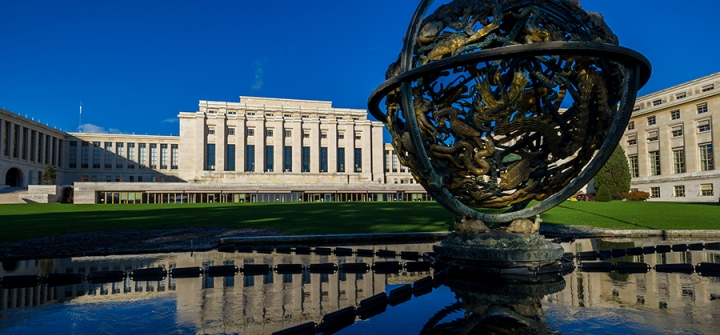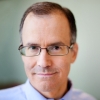8 Things to Watch at This Year’s World Health Assembly—#WHA71
When global health leaders convene in Geneva next week for the 71st World Health Assembly, they’ll gather under one banner: universal health coverage.
Hosting his first WHA as Director-General of the WHO, Tedros Adhanom Ghebreyesus has decided that UHC—the top priority for his tenure—should also serve the theme for this year’s WHA. But there will be plenty of other pressing topics to be discussed and issues events to follow.
Here are the top things to look for at WHA. (For the uninitiated, the WHA is the “supreme decision-making body for WHO.” It meets each May and includes representatives of all 194 members states.)
Even if you can’t make it to Geneva this year. It’s worth following #WHA71 since it affects health worldwide.
8. Streamlined Event
The word from Tedros’s office is that he wants a slimmed-down WHA with fewer side events in the UN Palais (where WHA takes place). Side events on specific topics are sponsored either by member states or nonstate actors (such as NGOs). 45 member states applied to host an event—27 of them received rejections. Hosts of recent events were told, no thanks. Applicants were also told that if the event isn’t explicitly connected to UHC, then forget about it. This left lots of NGOs and countries disgruntled and scrambling for venues outside of the Palais. One upside: More breakfast and lunchtime events.
Still, one Geneva-based source cautions: “We should be fair and give [Tedros] a chance to see if it does make for a better meeting.”
7. Sidelining Side Event Controversies
A European delegate told another GHN source that WHO officials may have considered another factor in their evaluations: controversy. The delegate suspected Tedros’s team “didn’t want events that rock the boat.”
One event with controversy potential—“Access to medicines: overcoming obstacles created by monopolies—essential to universal health coverage and the 2030 Agenda”—was accepted. However the event, organized by Brazil, India, Morocco, Senegal and Thailand, was given a most unfavorable time slot—Friday afternoon.
6. Star Power
Traditionally, the DG has opened the WHA with an address to delegates. This year, Tedros has pushed the conventional speech to the afternoon. He decided to bring in heads of state and others from each of the 6 WHO regions to open the assembly. Likely speakers, according to sources, include: India’s Prime Minister Narendra Modi; Rwanda’s President Paul Kagame; Swiss President Alain Berset; either Fiji’s prime minister or president; a princess from the UAE; and Argentina’s President Mauricio Macri (though he may not be able to make it). Watch for the leaders to voice support UHC.
5. The 13th General Programme of Work
The WHA will consider the blueprint for WHO priorities for 2019-2023 that was recommended by the WHO Executive Board (34 people nominated by rotating members states). The GPW aligns with the Sustainable Development Goals and includes 3 main priorities (the “triple-billion goals”: 1 billion more people receiving universal health coverage, 1 billion more people better protected from health emergencies and 1 billion more people enjoying better health. 44 targets and indicators are assigned to the triple-billion goals.
The second GHN source considers the GPW to have “an eagle’s eye view of things” with high-level goals that don’t get into the weeds.
4. Snakebite
The Assembly is set to approve a resolution on snakebites that could open up financing possibilities for costly anti-venoms and support for research. 90,000 people are killed each year because of poisonous snakes and perhaps 400,000 more lose their limbs or suffer blindness and trauma, SciDev reported on Friday. Snakebite was added to WHO’s list of neglected tropical diseases last fall.
“The only controversy with this resolution is a number of countries argued that you should also talk about spider and scorpion envenoming,” the first Geneva-based source noted.
3. Germany’s Role in Global Health
Look for Germany to continue to build on its increasingly important role in global health as the US focuses on other areas. (Last week’s departure of highly respected Rear Admiral Timothy Ziemer from the US National Security Council put an exclamation point on the recent US retreat from global health security issues.) Germany, meanwhile, has stepped up its efforts in filling the US void in global health, as discussed last July in The Lancet.
2. More Big Issues
While UHC is enjoying the limelight, #WHA71 delegates will be considering a slew of other important issues, including will antimicrobial resistance, climate change and primary health care (part of the run up to this fall’s 40th anniversary of the Alma Ata declaration on health for all). And global experts will be paying considerable attention noncommunicable diseases and to TB, each of which will be the subject of high-level UN meetings later this year.
1. Tedros
And finally, all eyes will be on Tedros as he closes in on his first year as Director-General. Last year’s WHA saw Tedros’s election to WHO’s top spot after a bruising global campaign. This WHA is his first chance to demonstrate his command of the issues and WHO’s famously entrenched bureaucracy.
Will he be able to keep donor countries happy while driving significant change? A successful #WHA71 will be one indicator of WHO’s institutional health under its new leader.
Ed Note: See the latest news from #WHA71 here.
Want to share a #WHA71 tip or a story idea? Want to connect with GHN editor-in-chief Brian Simpson in Geneva? Please be in touch.
Join the tens of thousands of subscribers who rely on Global Health NOW summaries and exclusive articles for the latest public health news. Sign up for our free weekday enewsletter, and please share the link with friends and colleagues: Subscribe to GHN
The Palais des Nations: The main UN building in Geneva and site of the World Health Assembly. Harold Cunningham/Getty Images





